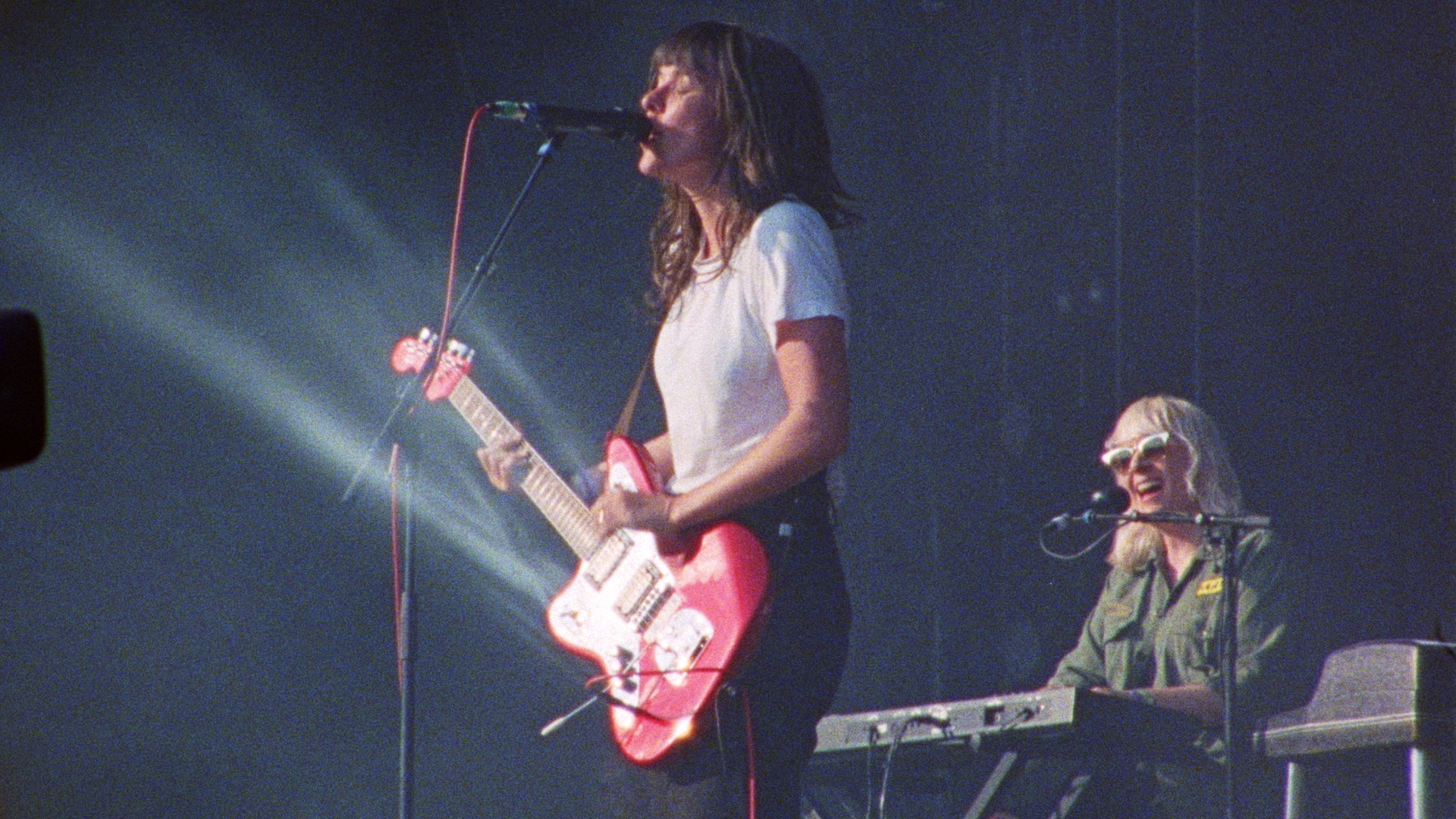“How is it for you having your work associated with such difficult, unpleasant, painful things?” a radio interviewer asks musician Courtney Barnett in the documentary Anonymous Club, which follows Barnett as she embarks on her first-ever solo tour in 2018. The question makes up the very first scene in the film, which is making the festival circuit rounds and playing in New York and Los Angeles theatres this week, setting the tone for the kinds of emotions documentarian Danny Cohen and his subject, Barnett, will explore. The interviewer, specifically, is referring to Barnett’s songs about anxiety, one of which—“Avant Gardener”—is her most famous, if Spotify streams are anything to go by.
“Life’s getting hard in here/ So I do some gardening/ Anything to take my mind away from where it’s s’posed to be,” she sings, before descending into a refrain of “I’m not that good at breathing in” to end the song. Her use of vivid imagery and metaphor is what makes Barnett the intriguing musician that she is. Her three solo studio albums Sometimes I Sit and Think, and Sometimes I Just Sit (2015); Tell Me How You Really Feel (2018) and Things Take Time, Take Time (2021) deal with issues of malaise, isolation and mental illness, sung in her slow timbre and accompanied by strums of the guitar. They’ve garnered her a Grammy and Brit Award nomination, as well as an Australian Music Prize win.
Throughout the documentary, Cohen asks to be let into Barnett’s innermost thoughts, and she graciously obliges. He tasks her with recording her thoughts on a dictaphone as she tours, and her reflections are sincere, though inconsistent (she confesses that there was a stretch of a couple of weeks where she didn’t record anything). It’s far from a groundbreaking approach to the documentary film, but it’s one that works with Barnett’s relaxed and laid-back demeanour. She doesn’t need to sit in front of a curated background to convey her thoughts—a tape recorder is enough.
Throughout her recordings, which come across equally as commentary and confession, she describes her anxiety at having to perform. Barnett states that some performances are liberating, while others are more rigid when she fears the audience is judging her. This revelation is important in dispelling the notion that an artist is a well-oiled machine and that a performance is a standardized action. Still, despite the fragility of her confidence, she never blames the audience. In fact, throughout the film, Barnett is nothing but kind and sympathetic to her fans—whether it’s in signing autographs or rationalizing stress. In one moment, for example, she talks through her anxiety about the audience being silent by laughing that she’d, too, be nervous to make a peep in a silent crowd if she were in their shoes.
If Anonymous Club could have benefited from anything, it would be to feature more of Barnett’s songs played in their entirety during the tour. There’s only one song—“City Looks Pretty”—that is played at length in the beginning of the film in place of a more traditional title sequence. The rest of the songs are shown in brief clips, which is a shame. When Barnett plays “Nameless, Faceless” to an enthusiastic crowd, her voice sounds more rugged and raw than it does on the studio recording. There’s a lot to read in the way she purposefully lowers her voice and sways while strumming her guitar. She even tells Cohen, through the recording, that she wrecked her voice after a particularly emotional concert, though we’re not privy to this footage.
But what we don’t receive in live concert footage, we gain in behind-the-scenes access. Throughout Anonymous Club, we see Barnett write songs for her next album (Things Take Time, Take Time, released in November 2021), in hotel rooms and tour buses. It’s fascinating to observe her process; the way she is able to mine melody out of a block of text. The end of the film even offers footage of her recording “Rae Street,” the lead single from the album. And even if by a small margin, it seems she has a freer spirit by Anonymous Club’s end, admitting that she finds no reason to build up “walls of catastrophe” over “creation.”
Catastrophe seemed to have plagued Barett’s thoughts throughout the tour, whether in imagining that she would embarrass herself on stage or remembering the climate in her home country of Australia. During a performance at a snowy venue, she tells the audience about the volatile state of weather back home: wildfires one day, floods the next, followed by hailstorms—and finally, a dust storm that lifted dust from the centre of the country and brought it to the east coast, turning the air, rain, and puddles red. And while this reads like a vision of apocalypse—everything plagued by a fiery red—this anecdote is followed by images of the calm, snowy terrain outside, as if to remind us that while there is chaos in the natural world, there is also peace.
And this duality is also true for Barnett. “Shave your head to see how it feels/ Emotionally, it’s not that different/ But to the hand, it’s beautiful” are lyrics from “Need a Little Time,” which was featured in the setlist of her tour though not shown in the film. They encompass how she perceives emotions: erratic, mesmerizing and confined to different locales—the heart, brain and hand all feel differently. And we see this play out on Barnett herself: the scarce concert footage shows Barnett playing the guitar with a steady hand, uneven voice and slouched posture. Sometimes, parts of our body are able to supersede hints of nervousness, while other parts are primed to indulge them.
Barnett makes for a wonderful subject because she is so certain in her uncertainty: she doesn’t hide the fact that her approach to music and performance changes by the night, nor that her emotions are chipper one day and depressed the next. She is an artist in flux—writing songs for an upcoming album while performing tunes from her previous efforts; living out of hotels and sublets, without a stable home to return to—and neither glamorizes nor critiques this fluid lifestyle. And while Barnett, rife with a nervous charisma and clever quips, proves herself deserving of this spotlight, the documentary does her a disservice in not showcasing that which brought her to the screen in the first place—her songs and overall musical skill. It’s hard to imagine that someone unfamiliar with her work will fully appreciate her artistry through this documentary alone. In this way, Anonymous Club is for those of us who have listened to Barnett’s words for years and itched for a glimpse at the woman behind them.


 Why you can trust Xtra
Why you can trust Xtra


